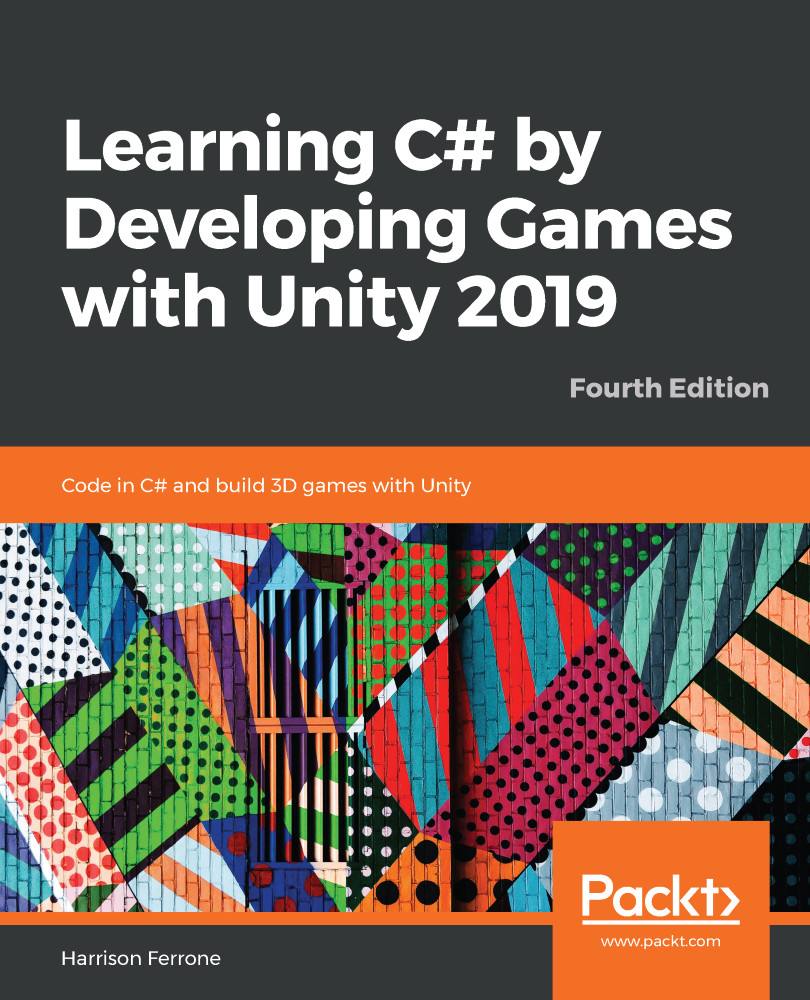Aside from accepting parameters, methods can return values of any C# type. All of our previous examples have used the void type, which doesn't return anything, but being able to write instructions and pass back computed results is where methods really shine.
According to our blueprints, method return types are specified after the access modifier. In addition to the type, the method needs to contain the return keyword followed by the return value. A return value can be a variable, a literal value, or even an expression, as long as it matches the declared return type.
Methods that have a return type of void can still use the return keyword with no value or expression assigned. Once the line with the return keyword is reached, the method will stop executing. This is useful in cases where you want to avoid certain behaviors or guard against program crashes.


